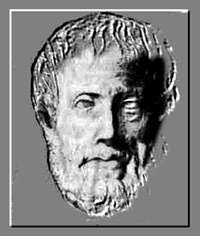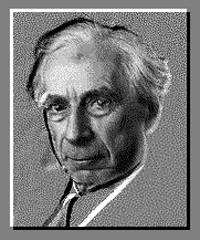
1. "Just take it, don't question!"
One extreme belief is the emphasis of God
as "the wholly other" that is not possible comprehended
by human beings. An attempt to "prove" God's existence
or study religions in a scholarly manner is accused of "using
human intellectuals to judge God's wisdom." During the medieval
age the Catholic church authority overwhelmed reasoning. Academic
inquiry was viewed as challenges to faith and even heresies (e.g.
Trial of Galilee).
- Human words are subject to God:
On one hand, human intellects and words have limitations. In the
fourth century a Saint remarked that human words are subject to
God, rather than God being subject to human words. The human mind
"must not measure the divine nature by the limitations of
its own, but must gauge God's assertions concerning himself by
the scale of his own glorious self-revelation."
- Why Bible?: Carl Henry, the prominent
evangelist theologian, counterbalanced the above notion by saying
that if God really can't be understood by human words, then Why
did God bother to reveal Himself through the Bible?
- Christianity grew with philosophy:
From the early church, Christianity is a rational faith due to
its interaction with Greek philosophy. A careful reading of the
Fathers (such as Athanasius, for instance) would indicate the
profound Christianization of Hellenistic terms and concepts. Though
they began as Greek terms conveying pagan content, such concepts
as creation, being, logos, providence, and person were thoroughly
transformed during the first four or five centuries of the Christian
era in the light of Old Testament prophecy and the apostolic testimony
to Christ.
 Aristotle said that moral virtues stand in
a mean of two vices. For example, the virtue of courage is the
middle of cowardice and rashness.
Aristotle said that moral virtues stand in
a mean of two vices. For example, the virtue of courage is the
middle of cowardice and rashness.
By the same token, it is important
for human beings to strike the balance in belief. Believing too
much is gullible and superstition, whereas believing too little
is cynicism and skepticism.
Right: Aristotle (384-322 B.C), of course. Who else could he be?
|
II. "I can't prove it with 100% certainty, therefore
I don't believe it."
On the other polar, some philosophers such as logical positivists and linguistic analysts rejected notions that cannot be proved empirically.
- Logical positivism is not proven:
The statements that "every proposition to be believed must
be proved " or "a meaningful statement is a verifiable
statement" are not proved. Bertrand Russell, the well-known
atheist positivist, asserted that mathematics can be proven sufficiently
because mathematics relies on logics. And logics persist even
if the human race faces extinction (how can he prove it? It sounds
like a religious faith). But it is generally agreed that Russell's
idea was overthrown by mathematician Curt Godel.
- We always exercise faith and make 100
% commitment:There is virtually nothing of which we can be
100% sure. Every day we exercise our faith to a great extent
(e.g., we consult a doctor without seeing his license; we drive
a car without checking the engine). Yet, we often make 100% commitments
with less than 100% proof. e.g., flying on an airplane. We cannot
be 100% certain that we will have a safe journey, but the statistical
evidence is strong enough to convince us that we will. Thus, though
we may not have 100% certainty of arriving safely, when we step
on the plane we make a 100% commitment! So the question becomes:
Is there enough evidence or proof to warrant making a 100% commitment
to Christ?
 | 
| Can you logically prove that this man is Bertrand Russell (1872-1970)? How could you know that it isn't a computer-generated or retouched image? | Kurt Godel was one of the greatest philosopher, logician and mathematician in this century. Can you see his pointed ears? Live long and prosper!
|
III. Faith and reason go together but faith precedes reason
The middle position of the above polarity
is that Christian faith is intelligent and rational. Our heart
and our mind should be consistent and they should both grow together.
- A strong and healthy faith involves
both mind and heart : God expects us to use our minds ( Mt
22:36-38; Jn 8:32). Even Bible authors conduct extensive research
(Luke 1: 3-4). A "weak faith" may be the result of the
heart trying to believe in something the mind cannot accept. But
the "strong faith" God requires involves both the mind
and the heart. As apologist Paul Little said, "We cannot
pander to a man's intellectual arrogance, but we must cater to
his intellectual integrity." In other words, spirituality
and rationality are not mutually exclusive. A strong Christian
should grow in both dimensions!
- Uncertainty makes life worth living :
If we can prove or see every aspect of something, we don't need
faith at all. This kind of so-called "belief" is simply
to accept the fact. Without 100 percent certainty our action requires
wise judgment, courage, trust and hope. And these make life worth
living! (Hebrews 11:1-3).
- Faith precedes reason : Do not misunderstand
that the balance of faith and reason implies that they are equally
important. In the Old Testament the word "faith" appears
only twice, but in the New Testament it occurs almost 500 times.
In the NT, faith becomes supreme of all human acts and experiences.
One of the Fathers St. Augustine believed that faith is a gift
of God, not the initiative of men. He said, "Faith seeks,
understanding finds...unless you believe, you will not understand."
St. Anselm also said, "Faith precedes reason."
Recommended Further Reading
Morris, T. V. (Ed.) (1994). God and the
philosophers: The reconciliation of faith and reason.
New York: Oxford University Press.
Lane, T. (1984). The Lion Book of Christian
Thought. Oxford: A Lion Paperback.
|

